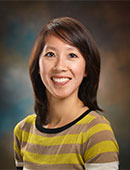
EPD: What have you learned from the program that you have been able to directly apply in the workplace?
MP: I’ve learned about my strengths and weaknesses as an engineering leader/ individual contributor. The program also expanded my knowledge about other areas outside of research and development such as finance, global custom/ culture, how to communicate technical information effectively, statistical data analysis, and others. The MEM program enriched my perspective and helped me grow significantly in the past two years. Now, I can see a problem from multiple perspectives and think about the right way to solve it.
EPD: What are some examples of skills you have now as a result of the program?
- I now can communicate my project progress and results more concisely and effectively to others.
- I am more proficient with MiniTab and can statistically analyze my own data.
- Because I know my weaknesses and opportunities for growth, I can make a clear development plan or request the right project work to help me grow further.
- I have project management tools or change management tools that I can choose from when needed.
EPD: What was your favorite thing about the program? What was your least favorite thing about the program?
MP: The program content is very practical to real world situations. I learned a lot from other students throughout the program–their experiences, their successes, and the problems they face at work.
The least favorite thing about the program I would say is the work related to computer programming (i.e. MatLab). It is certainly a beneficial skill to have but I think it is just not my cup of tea. I think it’s still great that I can get exposure to it again through this program.
EPD: What attracted you to UW-Madison’s program? How did you find out about it?
I obtained my bachelor’s degree in chemical engineering from UW-Madison so I have no doubt that it is a great university. That gave me confidence in choosing this program.
When I reviewed the course list, I knew it would help me grow as an engineer. Even though I was not sure at first about long-distance learning in general, knowing that this is offered by UW-Madison and understanding the course list/ commitment (e.g. the need to meet on-site for five days in August for residency) made me believe that it is a solid and well-designed long-distance learning program.
EPD: How were you able to balance the demands of a full-time job and going to school? What was a typical “day in the life?”
MP: It almost felt like I had two jobs because there is always school work to be done after work and on either Saturday or Sunday (or both days at times). Feeling the benefits here and there through the practical knowledge that I learned and the support from the family, instructors, and the cohort have helped me to keep going until I reached the finish line.
EPD: How supportive were your boss or coworkers of your decision to pursue the degree?
MP: My boss and my coworkers were very supportive of my decision to pursue the degree. My manager allowed me to attend the August on-campus residency each year; my coworkers were also open to meet and have a discussion with me about my finance questions, potential class project topics, and interviews, for example. A few work-related projects that I did for this program have exceeded my manager’s expectations in terms of the results that I delivered. I was very happy to be able to show immediate contributions to work even before I graduated from the program.
EPD: What advice might you give to someone considering the program?
MP: It is a well-designed long distance learning program for full-time engineers. The cohort system and the summer residency have worked really well for me who was initially quite skeptical about online learning program. There are a lot of practical skills and knowledge that someone can readily apply at work. It is also important to understand that you are going to face quite a lot of work during the two years, but the long term benefits are invaluable.
EPD: Were you interested in pursuing an MBA at some point? If so, what made you choose MEM over business school?
MP: I had thought at one point about an MBA as some of my friends are working toward an MBA. However, I was not fully convinced that it is the right program for me. I have more passion for technical things and I thought the MEM program would help me grow more professionally and personally than an MBA.
EPD: Can you sum up your experience completing a master’s from UW in one word?
MP: Eye-opening.